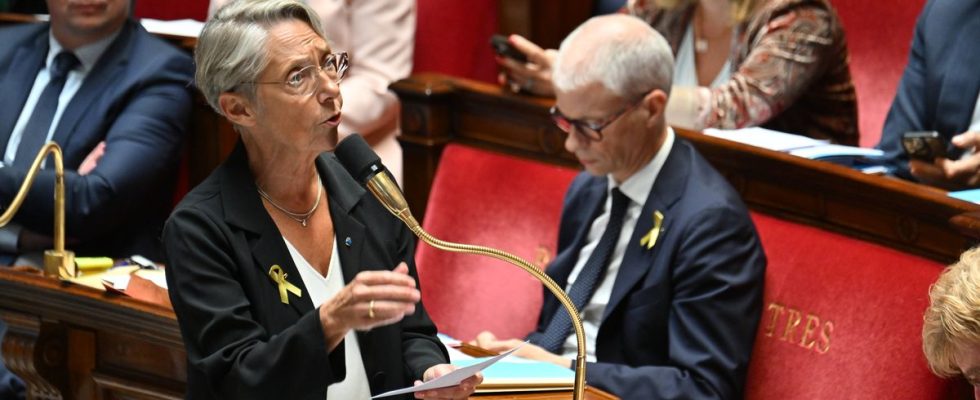After the deputies on Monday, it is the turn of 49-3 to make its comeback. Elisabeth Borne drew out this article from the Constitution on Wednesday, on a public finance programming text, the first appeal in a long list expected this fall.
“We need this law to program our public finances. We cannot take the slightest risk,” explained the Prime Minister to the National Assembly shortly before midnight, before holding her government accountable. This is his 12th use of this tool which allows him to pass a text without a vote, unless a motion of censure is adopted.
The PS castigates a “49-3 dependent” government
In reaction, Nupes immediately announced that it was filing a motion of censure. “This direction is the worst that has ever been made in our country. Seventy billion savings on the backs of the French by 2027,” denounced the president of the LFI group Mathilde Panot. “We have a government which is 49-3 dependent,” castigated his socialist counterpart Boris Vallaud, alongside the head of the environmental group Cyrielle Chatelain and the PCF deputy Nicolas Sansu.
The elected representatives of the Les Républicains party, for their part, should not table a motion and the leaders of the group have so far shown themselves reluctant to vote for censure on financial texts. “The government must understand that it cannot manage France by 49-3,” declared for his part the president of the independent group Liot Bertrand Pancher.
Oppositions on the left and right once again rejected the idea of supporting the public finance programming text on Wednesday. Only the RN group had left open the possibility of abstaining. But the presidential camp was in any case reluctant to the idea of a “deal” with these elected officials.
Distinct from the traditional State and Social Security budgets, the text must serve as a roadmap for the French budgetary trajectory over the period 2023-2027. Rejected by the Assembly a year ago, it notably plans to reduce the public deficit from 4.8% of GDP in 2022 to 2.7% in 2027, below the European objective of 3%. Public debt would fall by just under four points, to 108.1% of GDP, still well above the European limit of 60%. An “unambitious” trajectory based on “optimistic” growth hypotheses, criticized the High Council of Public Finances on Monday.
The fact remains that the executive is absolutely committed to the text, arguing that France is committed to providing a trajectory for Brussels to be able to obtain 17.8 billion euros over the period 2023-2024. Arguments that most oppositions refute.
The executive maintains a 49-3 for the regular session
For the executive, the timing is also interesting. As the text is examined in an extraordinary session, it will still have a score of 49-3 for the ordinary session which opens on Monday. The government can only draw 49-3 on a single text per ordinary session, excluding state budgets and the Social Security budget, for which it can take responsibility as many times as it wishes.

